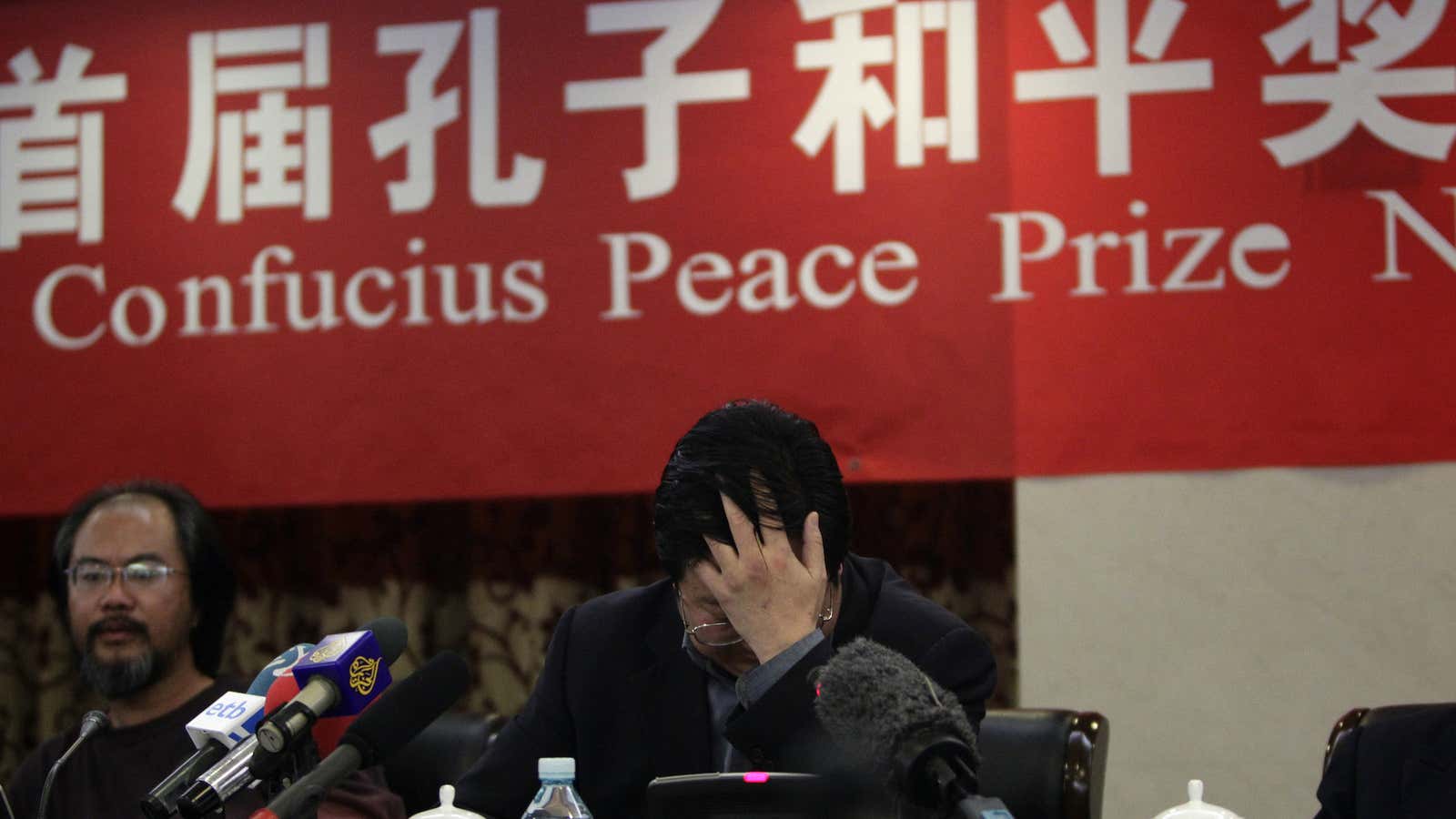Zimbabwe president Robert Mugabe was awarded the Confucius Peace Prize, an award that is meant to be China’s answer to the Nobel Peace Prize, late last week. But the autocratic ruler won’t be collecting his prize money of almost $80,000 or attending the lavish award ceremony. After learning that the prize is not connected to the Chinese government, Mugabe has decided to turn it down, according to local media.
Mugabe spokesman George Charamba told a reporter, “The Chinese government informed the Zimbabwean government it was not associated with the conferring organization. The matter ended there as far as government and the president were concerned.”
The Confucius award came about after Liu Xiaobo, a Chinese dissident under house arrest in China, was given the Nobel Peace Prize in 2010. The move angered Beijing, which then spent years giving Norway the cold shoulder. Still, the Chinese government seems embarrassed by the Confucius prize; it tried to have it shut down in 2011. The organizers of the prize are registered in Hong Kong. Past winners include Vladimir Putin and Fidel Castro. Previous winners, like former Taiwanese president Lien Chan, have also failed to show up for their award.
According to local columnist by the pen name Nathaniel Manheru, who is widely believed to be the spokesman Charamba, the Confucius award has become fodder for Mugabe’s critics, who ridiculed the selection of a man accused of killing and torturing his opposition. Manheru wrote in the state-run publication The Herald: “He is not involved; he is not there to receive the rumoured prize. In fact, he is firmly on Zimbabwean soil, carrying out chores of governance.”
The questionable state of Mugabe’s health as well as his hold on power may be other reasons why the 91-year-old leader won’t travel to accept the award. Mugabe has maintained a close relationship with China, where he has visited 13 times as president. Chinese investment in Zimbabwe’s mining, telecommunication, and construction sectors totaled more than $600 million as of 2013, according to Chinese government data. This capital has been essential to Zimbabwe given Western sanctions on the country.




